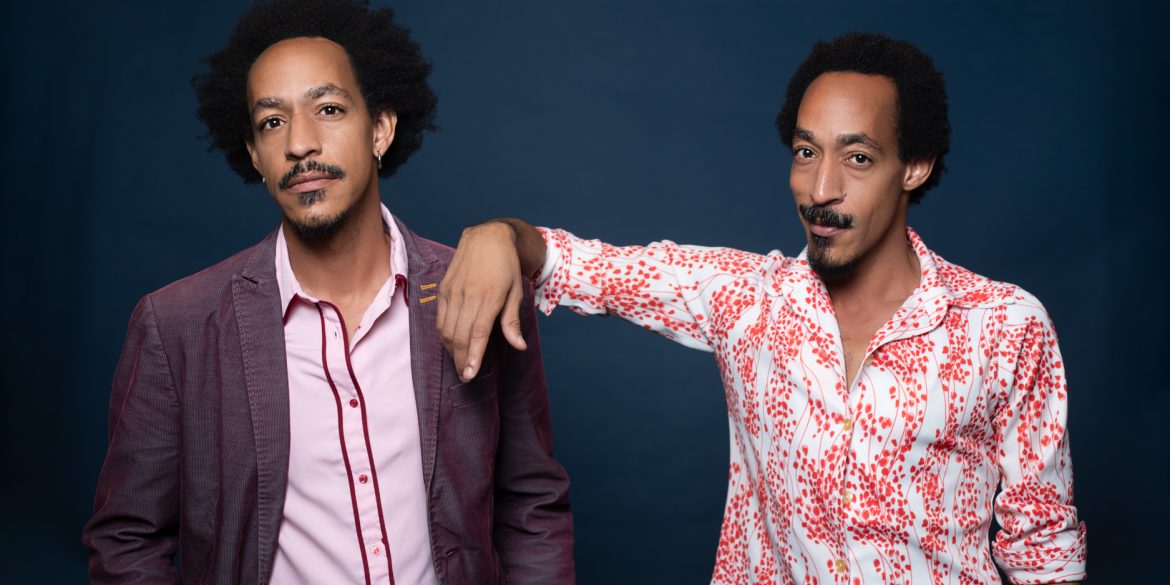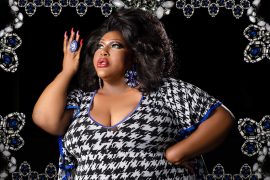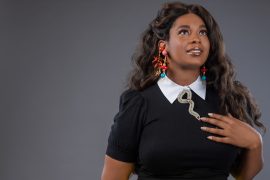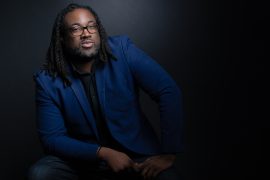Indianapolis’ music scene doesn’t usually come to the forefront of minds when thinking about our culture. Even NPR finds it questionable. Yet, its history and current influence in our city is overwhelming. There are clubs, venues, and organizations that are dedicated to showcasing the wide range of talent we have here. The local jazz community has its roots on Indiana Avenue, where famous jazz musicians like Wes Montgomery came up. There are people paving ways in opera like Angela Brown. The Chatterbox hosts the city’s best jazz musicians, young and old, every single night. Venues like the Phoenix Theatre are dedicated to giving Indianapolis artists a high quality place to showcase their art. WQRT is a local station sharing music of all genres and focusing on music history. We have record stores that have been around for decades. Saying Indy “doesn’t have a music scene” is deeply ignorant and passive.
Music is influential to our city and its development in so many ways. Jared and Joshua Thompson are local musicians and twin brothers who have been learning how to play and read music since they were five years old. Jared is a saxophonist and most recognized for playing in the local jazz band Premium Blend who’s fifth album, Virtue, is in the works. Joshua is a music sociologist who plays classical piano and co-hosts Melanated Moments in Classical Music, a podcast dedicated to the history of Black musicians in classical history. These two men are much more complex in their musical studies than that, so we wanted to get the full spiel. Check out the conversation below to learn more about how Indy’s musicians can better thrive here and get inspired to learn about what all Indianapolis has to offer for music buffs.
Photography by Polina Osherov
Cover Design by Lindsay Hadley
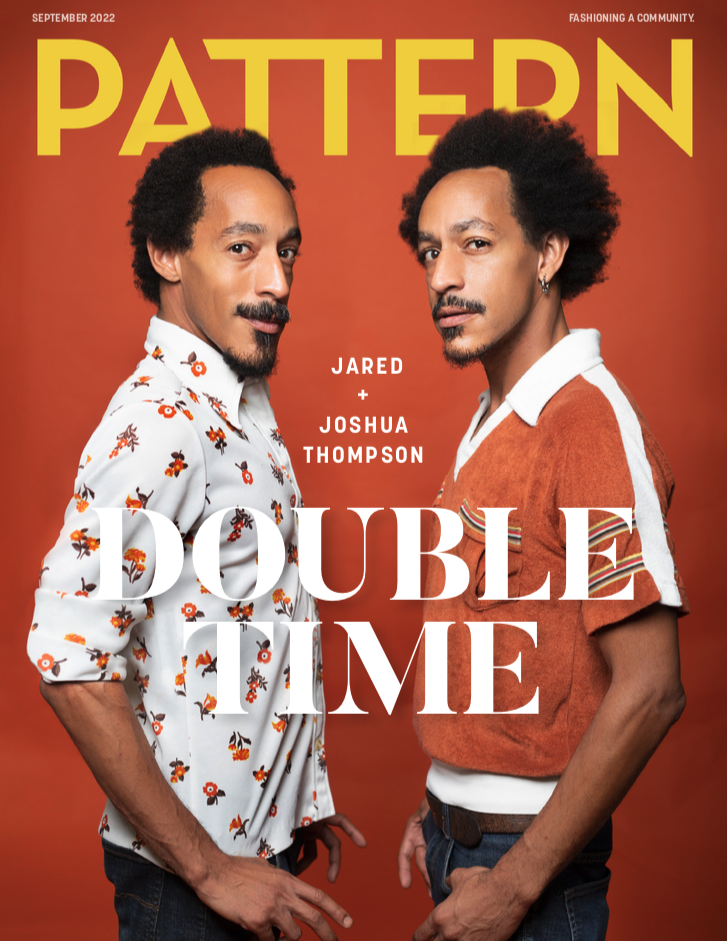
Cory Cathcart: You’re both full time musicians, what else do you do in your life for fun?
Jared Thompson: To get away from music stuff, I still find creative outlets. I love to cook. I absolutely love to cook. Chopped to me is like the culinary equivalent of jazz improvisation. You’ve got a set amount of things and you have to create something new with it. I love to garden. Honestly, if I’ve got a moment to sit down and relax I seize that opportunity every chance I get.
Joshua Thompson: It’s the same for me. Music is what I do for so much of my life. I joke that I don’t have one, but that’s absolutely by choice. If I’m not performing or I’m not lecturing I’m going out to see other folks and their mediums to see what they do, because I get inspiration from that. It’s a rarity, but it’s nice when I’m able to just be and not do anything. A lot of times that’s me hanging out with my dog Bebop and allowing myself to exist within and outside of my profession.
CC: Where’s your favorite place to go see live music?
Joshua: I’ll go check out just about any kind of music anywhere. I think every place has a very special thing. There’s something to be said for outdoor concerts and festivals; there’s an energy that you get. I’m a big orchestral classical music buff; there’s something about that atmosphere. Most of our friends are artists and musicians. We get together and we cook out and we have a couple drinks, and everyone brings their instruments–we have a community little porch party. From the organic to the highly organized and everything in between… if it sounds good, I’ll be there!
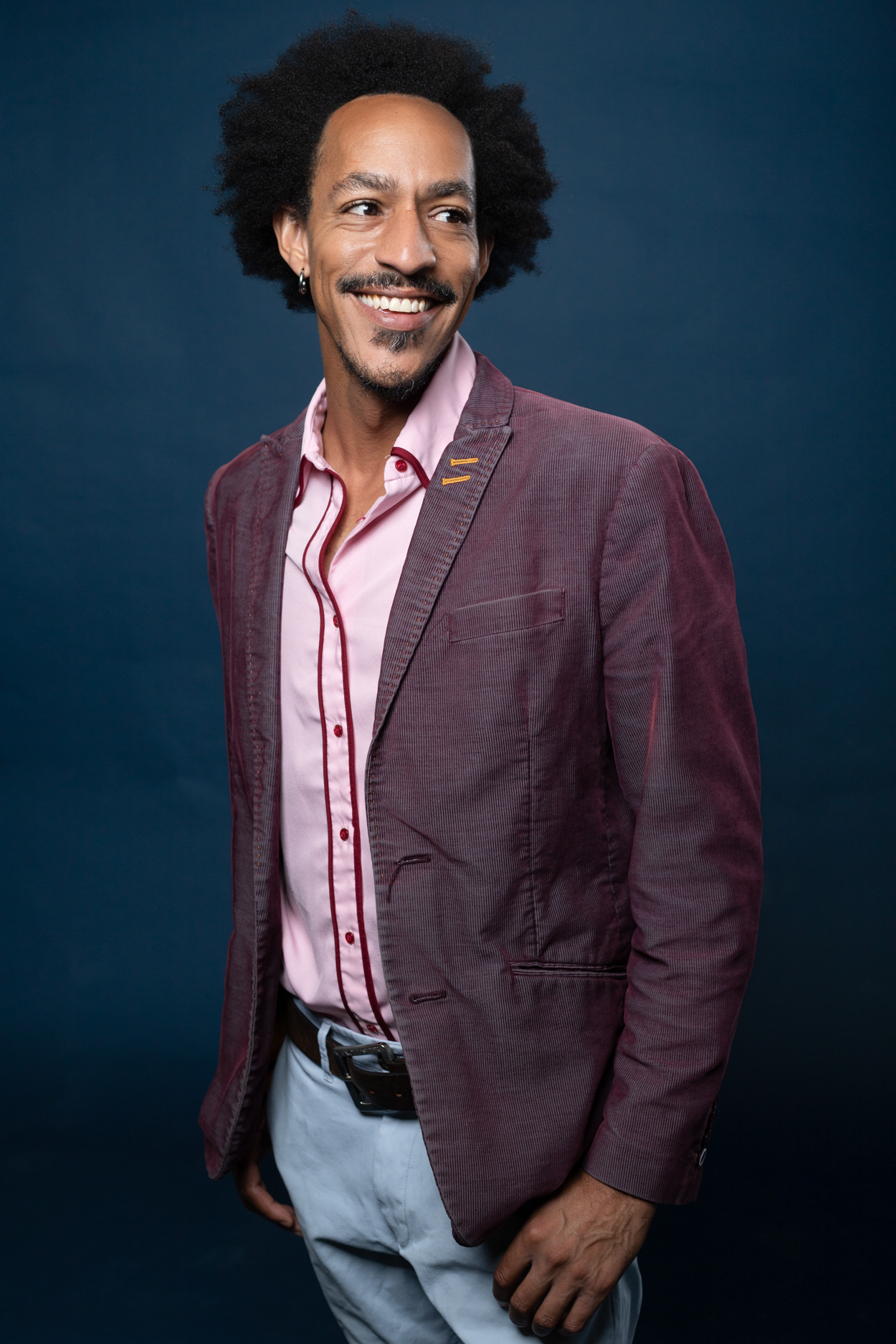
CC: Were you born and raised in Indianapolis?
Jared: Born and raised in Indy. We have an older sister that was involved in music as well. She sits on the board for the Dallas Winds. Music has been something that the three of us grew up with. We were learning how to read music at the same time we were learning how to read words. Those two languages have always been competing.
CC: Were your parents musicians as well?
Jared: My father has always been a huge jazz fan. And I think when he was coming up as a teen and young adult with his friends–they were listening to the records. My mother always wanted to take violin lessons, but her family wasn’t able to afford them. She has a beautiful singing voice, like this operatic singing voice. I can still hear it now. Growing up, mom was always singing. We were going to her voice lessons as little kids. I don’t think they were actively always in music, but there was always an appreciation for it and they found the value in the discipline that came with it as well.
CC: Since you’ve been doing some form of music since you’re young, how did you come into the genres that you choose?
Joshua: We all started piano at five, and picked up other instruments when we were ten. I remember little kid Saturday morning cartoons–Bugs Bunny and Woody Woodpecker. Classical music always caught my attention [in the cartoons]. There was so much going on, and I love to divide up my ear and try to catch everything. That’s what I gravitated towards. I’d never felt something so lush and so full and all encompassing. I was like I want to hear that and be a part of that forever and ever. There’s so many compositions with classical music that are without words, and I think that’s really special. It really focuses the listener to hear more intently. There’s this very automatic and visceral thing, if it doesn’t tug at your heartstrings you feel it in your body. I think the most special thing for me is to have the ability to create and recreate that feeling whenever I want to for myself or for others. I haven’t found anything in my life that even comes close to that.
Jared: For me, cartoons definitely were an influence. We were Looney Tunes, Warner Brothers, and Hanna Barbera fanatics. In some of those cartoons there’s no dialogue; the music is what drives the picture, so that’s what you gravitate towards. For me, it was easy to pick jazz. My basic ten year old brain was saying this is a saxophone… What music has a saxophone in it? Overwhelmingly, jazz is at the top of that. From that moment on, the more I started listening to it, it was all encompassing. I mean I was playing hours and hours and hours and hours in the summertime when my friends were playing basketball. All I wanted to do was be up in my room practicing. I started not just listening to the music, but I was reading autobiographies, biographies, and memoirs of what these musicians were like in real life and that solidified the beauty of what jazz is to me. All these individuals get on the stage together, to the audience member it looks like it’s just this spontaneous thing, that is a part, but there’s a spoken and unspoken understanding between everyone on stage. That’s what effective communication looks like. That is what a symbiotic relationship literally looks and sounds like to me.
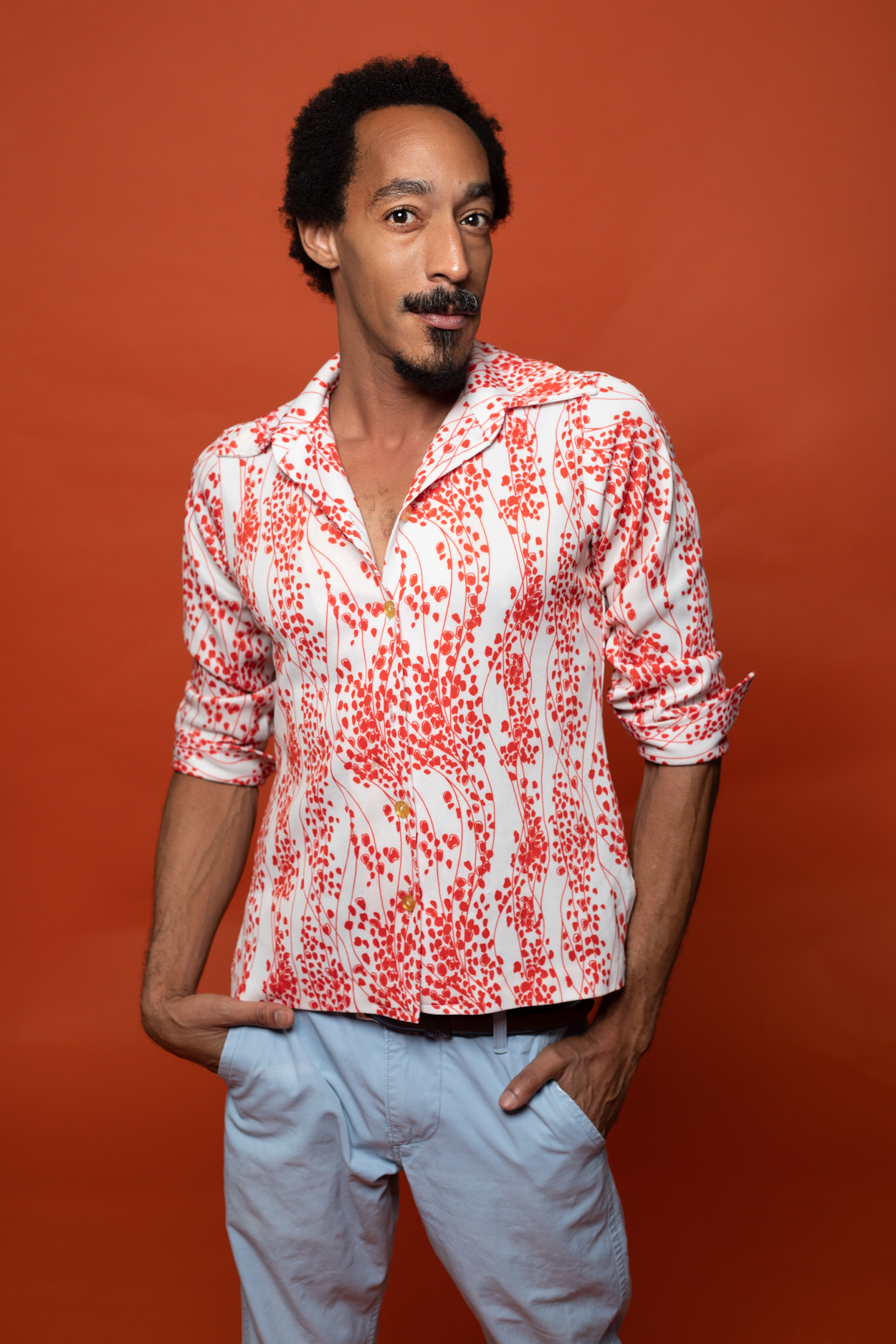
CC: Within the creative economy, what do you think is being done well to help musicians thrive? What could be better?
Joshua: I really feel like that question is very much parallel to how does an instrumentalist get better? Every day you’re at the apex of your ability, and if you surround yourself with other people and other organizations who are knocking it out of the park then you learn those strategies. The city of Indianapolis, and even beyond, is starting to kind of figure it out. There is this deepening understanding, and we’re starting to be able to plot-point tangible and empirical things, so we can say art and artistry is not just a luxury. It is actually a fairly necessary cornerstone of any social ecosystem, right? The things that you’re learning–yes, it’s music–but it is also time management, discipline, communication, how to treat other folks, how to add to the city, whether it be economically, culturally or in community. A lot of these organizations are becoming much more visible and vocal about what opportunities they have to provide. A very telling thing is a lot of these organizations are finally starting to say they don’t know exactly how to do this in a way that is actually meaningful for you to have sustainable careers. That acknowledgement is absolutely huge. My concern is there seems to be a misunderstanding of how huge the wage gap is between musician’s and artist’s careers versus arts organizations, and people who do that administrative part. There’s also not a very healthy and effective conversation going on between arts institutions and the schools that are here. Funding [for the arts] is being taken from public education, and any other type of education when it comes to that. [Value] is going have to show up in our checkbooks. It’s going to have to show up in our schools. It’s going to have to show up in community centers. Everyone’s not going to become a professional musician but everyone, through music education, can become a contributor to their society to be a good citizen. These are leadership skills.
Jared: I would agree with Josh that a positive thing is that they’re starting to identify points of improvement and accessibility. I think payment is a thing just by and large in this city we’re about ten years behind as far as equitable rates for musicians. A part of that is because another thing that needs to be addressed is the quality versus the quantity. If you’re not knowing how to vet a certain artist of any genre or any medium, then you don’t know the difference between sand and sugar. If you don’t know the difference between sand and sugar, they’re worth all the same to you. You can’t have a sugar artist making sand money and vice versa. It’s mainly proving the appreciation that they say that they have. That means that money has to increase.
Joshua: In addition to being a classical pianist, I’m a music sociologist. That’s a very fancy academic word for saying music historian, but also teasing out the social implications within music, the people who wrote it, and how it is a reflection of the times. I work with a lot of organizations when it comes to consulting, strategizing, and how to improve programming. The city of Indianapolis contributes $7.6 billion to the national GDP, which is quite significant. That was during the pandemic year, and so we’re giving a decent amount of financial juice to the country. If you break down where that money is going, it’s not going into the individual artists pockets. It goes to the arts administrators and the organizations. There needs to be more mutualism here. We all need each other. The arts organization doesn’t matter if the artist isn’t here. The artist needs the arts organization as a launching pad. There needs to be a leveling of where that money distribution goes because our downtown is expanding. There’s high rises everywhere, but at the same time, we are at a very critical point. We really are running the risk of losing a lot of phenomenal artists and film and music and theater, because they’re not paying enough to the individual and we would like to stay here.
CC: What are you both working on right now?
Jared: My band, Premium Blend, we’re going in the studio to record our fifth album called Virtue. Super excited about that. I’m premiering my micro-composition through Classical Music Indy at the Amp at 16 Tech. That’s on September 17. I’m participating in Indianapolis Jazz Fest on September 30. We’ll be playing at the Jazz Kitchen on the 30th to kick that off. And then Opera in the Park is on September 10. I’ll be performing with Joshua and world-renowned opera singer Angela Brown. It’s a really busy end of summer, beginning of fall.
Joshua: I’m doing Opera in the Park with Indianapolis Opera Company. It’s my second year returning. It’s fun to be able to work with Jared because we usually don’t. This is a special thing where we get to show off together. Angela Brown and I are podcast co-hosts for a podcast I created back in 2020 called Melanated Moments in Classical Music highlighting compositions, composers, and musicians of African descent in the world of classical music. We’re recording our fifth season. We’re super excited because we actually have an international audience. We are in over 2,000 cities worldwide, and wildly excited because there are colleges and universities around the world who are actually using the podcast as course curriculum for music education. I have an opportunity to be in residency within the Indianapolis Chamber Orchestra through 2024 and the Indianapolis Youth Orchestra. I’m really excited because for the 2024 season with the ICO, I’ll get to debut my own original work called Tell Me a Bedtime Story. It’s using compositions from composers of African descent with a local dance troupe to tell, in a new way for the 21st century, origin stories and creation stories from cultures in Africa that we don’t hear.

